For HOA communities, the beginning of the year is an important time for planning. In order to set your community up for success, there are several things you can do this month to ensure your checklist is updated and your financials are in order.
Here are a few noteworthy items to consider tackling in February:
1. Review last year’s budgets to determine which accounts were in alignment
Taking a closer look at your financial documents from the previous year is an easy way to clearly outline your expectations and goals for the new year. This includes analyzing the differences between projected costs and actual expenses to create a more accurate plan for this year’s financial efforts. Don’t be afraid to take a look at the budgets for two, three, four and more years ago, either. A greater amount of data can often provide increased insight.
2. Prepare and file your community’s taxes
Although HOAs are not-for-profit (and even if they are specifically designated as a non-profit organization in your state), they are still recognized by the IRS as corporations. This means that they do need to pay taxes and file tax returns. HOAs can file with two types of forms: Form 1120 and Form 1120-H. This process also includes identifying non-exempt income and filing taxes on leftover income, even if this is deposited into your community’s reserve fund.
3. Coordinate the compilation, review, or audit process for your community
Reviews provide limited assurance by conducting analysis and discussions. Considered an ‘assurance engagement’ in accordance with generally accepted standards, review engagements require an accountant to perform certain procedures. Often, this includes a discussion between the accountant and the HOA management team to create an analysis of financial information provided. This is to ensure that these statements are free from material misstatements.
Compilations are a summary that provide no assurance on the accuracy of your financial statements. Recognized as the most basic type of engagement, this process is a good choice for owner-managers who need help presenting their company’s financial information in statement form.
Audits require a comprehensive examination of source documentation (including invoices, bank statements, etc.) and provide the highest level of assurance. This is because this complex analysis process confirms that the HOA’s financial information is complete, accurate, and valid, while also confirming that there are not material misstatements in any of these statements.
4. Mail financial report from CPA to owners
Homeowners in an HOA have the right to the community’s financial reports. Once this information is gathered and reviewed by the CPA, it should be compiled and sent to the owners so they can review them. (If an audit takes place, the report should be delivered to the association within 90 days of the turnover date.)
For more information on any of these processes, please contact our Director of Community Associations, Dominic Cirillo. Atlantic & Pacific Management has over 40 years of experience serving HOA communities in California with top-tier customer service. We would be happy to
